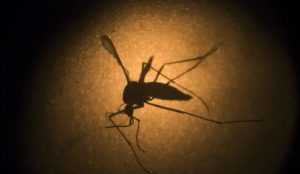
Pesticides Cause Mysterious Brain Disease in Diplomats in Cuba
Pesticides Cause Mysterious Brain Disease in Diplomats in Cuba
September 25, 2019
BuzzFeed News — Canadian diplomats with “Havana syndrome” injuries show signs of pesticide poisoning, suggests a new international study led by Prof. Alon Friedman, the Dr. Helena Rachmanska-Putzman Chair in Neurology at Ben-Gurion University and founder of the Inter-Faculty Brain Sciences School. The study posed an explanation for mysterious long-term neurological ailments striking diplomats from the U.S. and Canada in Cuba.
The finding suggests that the Zika virus crisis of 2016 may have inadvertently created the syndrome through excessive fumigation. Fears about the syndrome led to an international diplomatic row.
“We actually found a specific brain region that was affected and that was the clue to everything else,” said Friedman, a neuroscientist who is also the Dennis Chair in Epilepsy Research at Dalhousie University in Canada.

BGU Prof. Alon Friedman, who led the study to understand why U.S. and Canadian diplomats stationed in Cuba were suffering from concussion-like symptoms
“There was a kind of an ‘aha’ moment, when we realized what might damage this part of the brain,” Friedman said.
In late 2016, the U.S. State Department reported that its diplomats in Havana began suffering a “health attack,” in the words of then–Secretary of State Rex Tillerson. At least 26 U.S. diplomats and 14 Canadian ones eventually reported symptoms such as dizziness, deafness, difficulty concentrating, and other signs of head injuries.
Initially linked to “sonic weapons” in news reports, explanations have ranged from a concussion-like syndrome to microwave injuries in limited studies. Outside observers raised the possibility of viral or mass psychological causes for the injuries.
The U.S. State Department reported it was working with the Canadian government on investigating Havana syndrome and looking at the pesticide findings. Friedman said he presented the results to U.S. officials “a few weeks ago,” as well as to Cuban ones.
The new study started out with “no preconceptions,” Friedman said, who looked at 26 Canadian diplomats and their family members, referred by Canada’s foreign affairs ministry. Along with standard health measures, blood samples and brain scans were conducted with a research scanner that analyzed for signs of blood vessel leakage pointing to brain damage.
Eight of the diplomats who were tested both before and after they lived in Havana showed signs of damage concentrated in one small part of the brain that handles an enzyme needed for proper nervous system function, cholinesterase. These enzymes are heavily involved in both concentration and forming memories. Similar damage was seen at the base of the brain, in a related region involved with both balance and sleep, said Friedman.
A broad chemical analysis found insecticides that interfere with cholinesterase were in the blood samples of six of the 10 diplomats who were posted to Cuba two years ago, when widespread Zika mosquito spraying was ongoing. The tests also found 3-PBA, another common insecticide, in most of the diplomats. Their exposure corresponded to a sharp increase—as much as five times more often—in outdoor fumigations that Canada’s foreign ministry arranged around diplomatic housing in Havana in 2017.
All of that adds up to excessive exposures, Friedman suggested, which could have occurred during the Zika virus crisis of 2016. “Canadian embassy records furthermore confirmed a significant increase in the frequency of fumigations around and within staff houses beginning January 2017, concurrent with reported symptoms,” the study reports.
There is no way to irrefutably prove that the pesticides caused Havana syndrome, “short of sending another 20 diplomats to Havana and exposing them to pesticides, which wouldn’t be ethical,” Friedman says. But the theory at least offers a plausible explanation for the effect—a double dose of fumigants among diplomats—beyond the more wacky theories about sonic mystery attacks.
Friedman noted that his team’s study is still undergoing peer review by a scientific journal and might face changes in the final form. “We felt we had to let Cuban officials know about the findings as well as Canada and the U.S. because there is a real public health concern here if this is a factor.”




